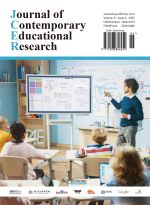Abstract
With the rapid popularization of artificial intelligence technology in the field of higher education, college students are increasingly dependent on AI tools such as ChatGPT, automatic writing assistants, and intelligent translators. Behind the convenience and efficiency, a decline trend in students’ core learning abilities such as autonomous learning ability, critical thinking ability, and knowledge construction ability has gradually emerged. This study aims to explore the interactive logical mechanism between college students’ reliance on AI tools and the weakening of their learning abilities, and on this basis, propose practical and feasible educational intervention strategies. Research has found that while AI tools lower the learning threshold, they also weaken students’ cognitive investment and independent thinking abilities, further intensifying their reliance on technology. In this regard, this paper proposes a three-dimensional intervention path based on guided usage, ability compensation, and value reconstruction to achieve the collaborative improvement of students’ technical usage ability and learning ability. This research has certain theoretical value and practical enlightenment significance for solving the structural predicament of higher education in the intelligent era.
References
Zhai C, Wibowo S, Li LD, 2024, The Effects of Over-Reliance on AI Dialogue Systems on Students’ Cognitive Abilities: A Systematic Review. Smart Learning Environments, 11(1): 28–34.
Li B, Jiang J, Ma L, et al., 2024, Mitigating University Students’ Reliance on ChatGPT, 2024 8th International Seminar on Education, Management and Social Sciences (ISEMSS 2024), Atlantis Press, 245–251.
Putri SA, 2025, Analyzing Students’ Weaknesses in Using Artificial Intelligence for English Learning Purposes. Tadangate Journal of Educational Research, 2(1): 11–24.
Szmyd K, Mitera E, 2024, The Impact of Artificial Intelligence on the Development of Critical Thinking Skills in Students. European Research Studies Journal, 27(2): 1022–1039.
Miranda JPP, Cruz MAD, Fernandez AB, et al., 2025, Erosion of Critical Academic Skills Due to AI Dependency Among Tertiary Students. Don Honorio Ventura State University, 4(2): 1–24.
Gawlik-Kobylinska M, 2024, Harnessing Artificial Intelligence for Enhanced Scientific Collaboration: Insights from Students and Educational Implications. Education Sciences, 14(10): 11–32.
Zhao G, Sheng H, Wang Y, et al., 2025, Generative Artificial Intelligence Amplifies the Role of Critical Thinking Skills and Reduces Reliance on Prior Knowledge While Promoting In-Depth Learning. Education Sciences, 15(5): 554.
Athar ME, 2025, The Constructive, Over-Reliant, and Irresponsible Use of Artificial Intelligence Tools in Academia: Personality Correlates and Implications for Academic Integrity. Computers in Human Behavior Reports, 18: 100679.
